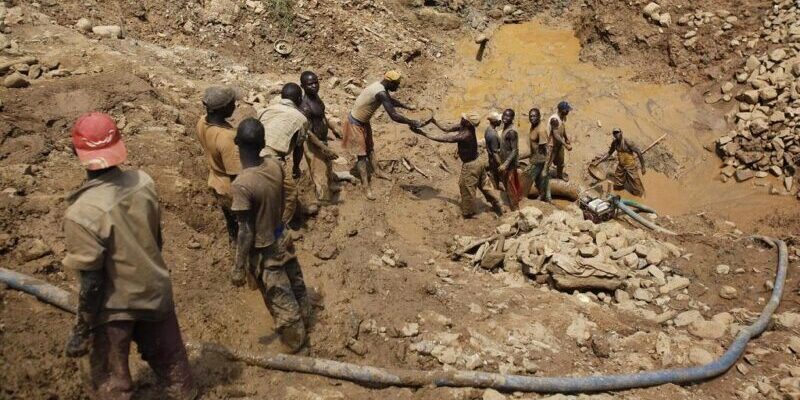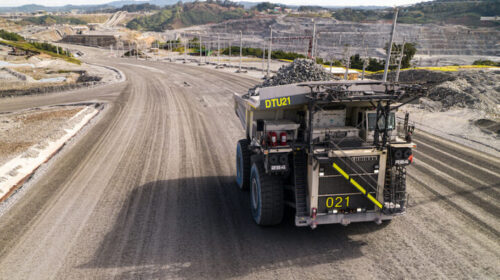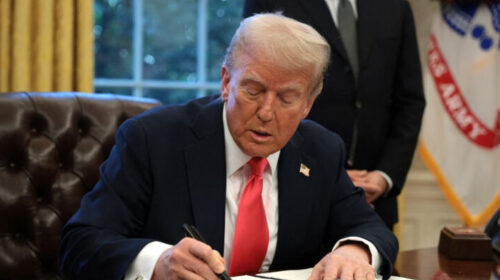Ghana Faces Billion-Dollar Challenge to Reclaim Land Devastated by Illegal Mining
Ghana requires billions of dollars to restore vast stretches of degraded land and polluted water bodies caused by years of illegal mining. Professor Nana Browne Klutse, Acting CEO of the Environmental Protection Authority (EPA), described the situation as an emergency and urged development partners to support the country’s reclamation efforts.
Speaking to the Ghana News Agency on Tuesday, Prof. Klutse revealed that a World Bank-funded pilot project had facilitated some land restoration. However, scaling up these efforts requires additional funding.
“We have been approached by companies willing to assist with reclamation, but Ghana must bear the cost of the technology after the pilot phase,” she explained.
She emphasized the need for all mining companies to contribute to a reclamation bond upon obtaining permits. However, many illegal miners have exploited large areas and disappeared without accountability.
“At present, vast tracts of land remain degraded, abandoned by unidentified individuals who have absconded. We need to reclaim these lands, but we lack the financial resources,” she added.
The recently enacted Environmental Protection Act 2025 (Act 1124) elevates the EPA to an authority, allowing for enhanced monitoring and enforcement.
Plans are underway to establish district-level offices to improve oversight, educate communities, and enforce environmental regulations.
“Our oversight has been insufficient, but soon, we will have a district-level presence to educate, guide, and penalize offenders where necessary,” Prof. Klutse stated.
Efforts to restore polluted water bodies are ongoing, though progress will take time. Illegal gold mining has devastated southern Ghana, particularly resource-rich regions like the Upper Offin sub-basin.
A study by the International Water Management Institute found that these once-thriving areas, known for dense forests and cocoa plantations, now suffer from severe land degradation, reduced agricultural productivity, and water pollution.
In 2024, the Centre for Remote Sensing and Geographic Information Services, through the SERVIR West Africa programme, reported that over 670 square kilometers of land—comparable in size to Singapore—had been destroyed by illegal mining.
High turbidity levels, caused by excessive sedimentation from mining, pose severe threats to water quality, ecosystems, and public health. In March 2024, Ghana Water Limited reported difficulties treating water for Sekondi-Takoradi residents due to extreme turbidity.
The Daboase Water Treatment Plant, designed to handle turbidity levels of 100 Nephelometric Turbidity Units (NTU), was now dealing with levels reaching 7,000 NTU, with some areas recording as high as 14,000 NTU—far exceeding the 2,000 NTU safety limit.
The contamination, including toxic chemicals from mining, has led to frequent machinery breakdowns and increased water treatment costs.
Many communities have been forced to seek alternative water sources, which are often unsafe or unaffordable. Water pollution linked to illegal mining has been associated with serious health conditions, including kidney failure, birth defects, and cancer.
Several major rivers—including the Pra, Ankobra, Birim, Offin, Densu, and Oti—have been heavily polluted, threatening human and wildlife populations.
Ghana faces a daunting challenge in restoring its degraded environment, but with strategic funding, stricter enforcement, and public cooperation, progress can be made.
The government, environmental agencies, and international partners must collaborate to mitigate damage and implement long-term solutions for sustainable land and water management.
The EPA continues to call for urgent intervention, warning that without immediate action, Ghana risks long-term environmental and economic consequences.
59 total views , 2 views today





